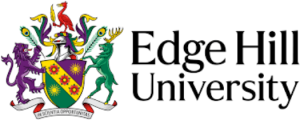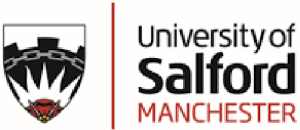A pioneering project led by Edge Hill University and developed in collaboration with the University of Salford, which uses the arts to tackle depression, has been awarded new funding to scale up across the North West of England.
Arts for the Blues is a collaborative research project between artists, therapists, universities, NHS trusts and cultural institutions. It has been developed to address a vital need in the North West, which has high levels of mental health problems, exacerbated by economic conditions and the Covid-19 pandemic.
Now, the team behind the project has been awarded £145,000 from the Arts and Humanities Research Council (AHRC) to build on these positive results.

Currently, mental health provision predominantly focusses on talking-based therapies. However, this excludes many people for whom talking therapy is not a viable treatment; including those who struggle with verbal communication or don’t have a strong command of English.
The high levels of drop-out from primary care mental health services (IAPT) – calculated at 63% by NHS Digital in 2021 – show that further options are needed, which is why Arts for the Blues has been developed. By using a creative psychological therapy that encompasses movement, visual arts, drama, music, creative writing and talking, people can experience and express emotions, share with others, and develop useful techniques to use outside of the therapy.
Over the last five years, the project has worked with hundreds of adults and children in schools and mental health services across the North West. Results from adults showed decrease in anxiety and an upturn in wellbeing. A pilot trial with 56 children suffering emotional or behavioural difficulties was similarly successful; 12 months after the intervention, there were sustained improvements in their quality of life, quality of sleep and overall wellbeing.

The AHRC funding boost will facilitate working with healthcare and cultural institutions in the region providing training to develop the skills to deliver the interventions themselves as well as co-produce a strategy of scaling up the Arts for the Blues model across the North West.
Professor Vicky Karkou, Director for the Research Centre for Arts and Wellbeing at Edge Hill University, is the principal investigator and said of the news:
“Arts for the Blues has already shown how it can have a tremendous impact, using a new approach to tackle a massive problem. I’d like to thank AHRC for this support, which enables us to expand on this progress and improve even more people’s lives across the North West.”
Dr Scott Thurston, Reader in English and Creative Writing at the University of Salford, and co-investigator on the project said:
“It was really refreshing that the AHRC recognises the impact of arts and culture, nature and other forms of community assets in addressing health inequalities and decided to focus this funding on scalability. We feel that Arts for the Blues has so much more to give to the North-West and can’t wait to find out how best to expand what we do.”
Dr Joanna Omylinska-Thurston, Counselling Psychologist at Greater Manchester Mental Health NHS Trust and Lecturer in Counselling and Psychotherapy at the University of Salford, is also a co-investigator in this project and co-founder of Arts for the Blues. She said:
“I’m particularly interested in bringing Arts for the Blues to Improving Access to Psychological Psychotherapies (IAPT), to offer clients a wider choice of treatments in order to address significant health inequalities in the region. Clients and staff in the NHS ask for creative interventions and I am delighted we received funding from AHRC to offer Arts for the Blues to them. This sounds really exciting and I look forward to enabling this across the North West.”



